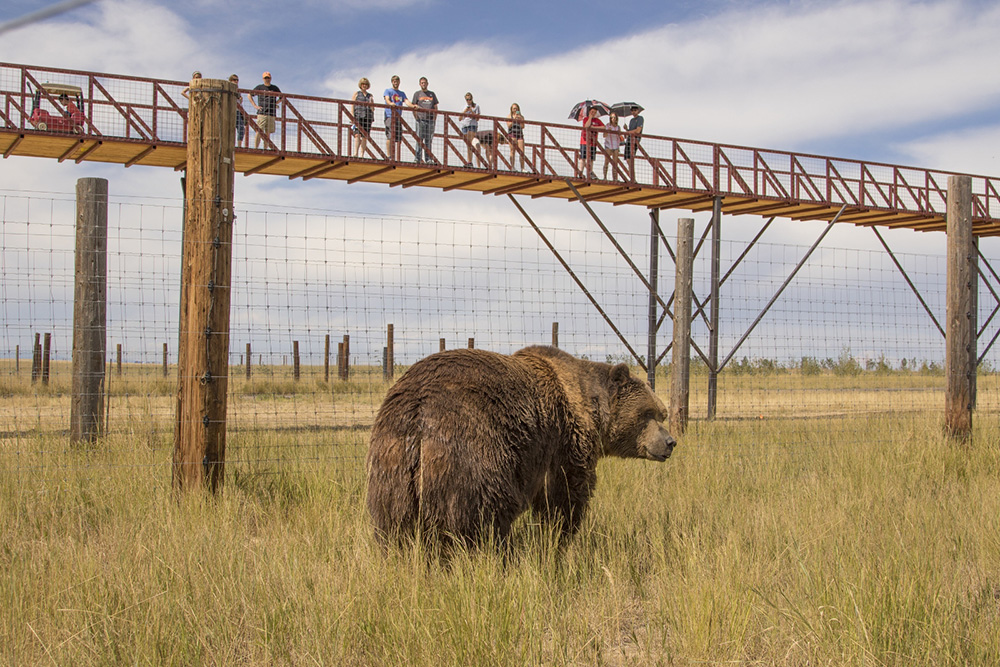Categories more
- Adventures (17)
- Arts / Collectables (15)
- Automotive (37)
- Aviation (11)
- Bath, Body, & Health (77)
- Children (6)
- Cigars / Spirits (32)
- Cuisine (16)
- Design/Architecture (22)
- Electronics (13)
- Entertainment (4)
- Event Planning (5)
- Fashion (46)
- Finance (9)
- Gifts / Misc (6)
- Home Decor (45)
- Jewelry (41)
- Pets (3)
- Philanthropy (1)
- Real Estate (16)
- Services (23)
- Sports / Golf (14)
- Vacation / Travel (60)
- Watches / Pens (15)
- Wines / Vines (24)
- Yachting / Boating (17)
Published
02/22/2017 by The Wild Animal SanctuaryThe Wild Animal Sanctuary, the nation's oldest and largest nonprofit Wildlife Sanctuary, has successfully rescued (3) Bengal Tigers, (2) African Lions and (2) Grizzly Bears from inhumane conditions at a closed zoo in Colon, Argentina.
The five big cats and two bears were the last remaining animals to leave the zoo after closing its gates nearly 4 years earlier. City officials contacted the sanctuary after closing their doors due to world-wide protests over the inhumane care and squalid conditions that existed at the zoo.
A team of four staff members including the Sanctuary's head veterinarian, Dr. Felicia Knightly, visited the zoo in 2014 to determine if the animals were in sufficient condition to undergo the 6,400 mile trip to Colorado. The non-profit wildlife sanctuary was chosen after numerous attempts to find suitable homes within Argentina failed.
The initial team's inspection determined the animals needed time to gain weight and receive medical attention in order to safely travel to the United States - which would be accomplished while international paperwork and import/export permits were pursued. As of January 2017, all seven animals were ready to make the trip, so a new rescue team was sent from the Sanctuary to retrieve the animals.
On February 11th, 2017 the team traveled back to Colon to begin the relocation process. Once the animals were crated and transported to Buenos Aires, both the animals and human caretakers flew to Miami, Florida where they connected with one of the Sanctuary's ground transportation teams.

Within 28 hours the animals arrived at their final destination in Keenesburg, Colorado. Animal care staff at the Sanctuary had spent the previous week preparing special accommodations for the Argentinian refugees, and immediately released the cats and bears into their new homes.
All seven animals successfully made the trip to Colorado without incident, but some had lingering medical issues that would require attention. The male bear was virtually blind due to an advanced case of cataracts, while his female partner suffered from severe dental problems.
Before leaving Argentina, the rescue team discovered the female bear had a significant nasal cavity infection, which had been caused by numerous broken teeth. Now that both bears are under the care of the Sanctuary's highly-experienced doctors, both issues will be corrected through specific medical procedures.
Once all seven animals receive medical clearances, they will begin a rehabilitation process that enables them to be released into large natural habitats where they will live comfortably and roam freely. The Sanctuary will continue to care for the animals, as well as feed and support their daily needs on a full time basis, just as they do for all rescued animals living at the facility.
Last year marked nearly 37 years of rescuing exotic and endangered animals for the wildlife sanctuary. The 720-acre facility is located 30 minutes outside of Denver, Colorado and is home to more than 450 large carnivores. The Sanctuary features a 1.5 mile long elevated walkway that recently received the Guinness World Records award for Longest Footbridge – which enables visitors to walk above and observe rescued animals living in spacious habitats.















